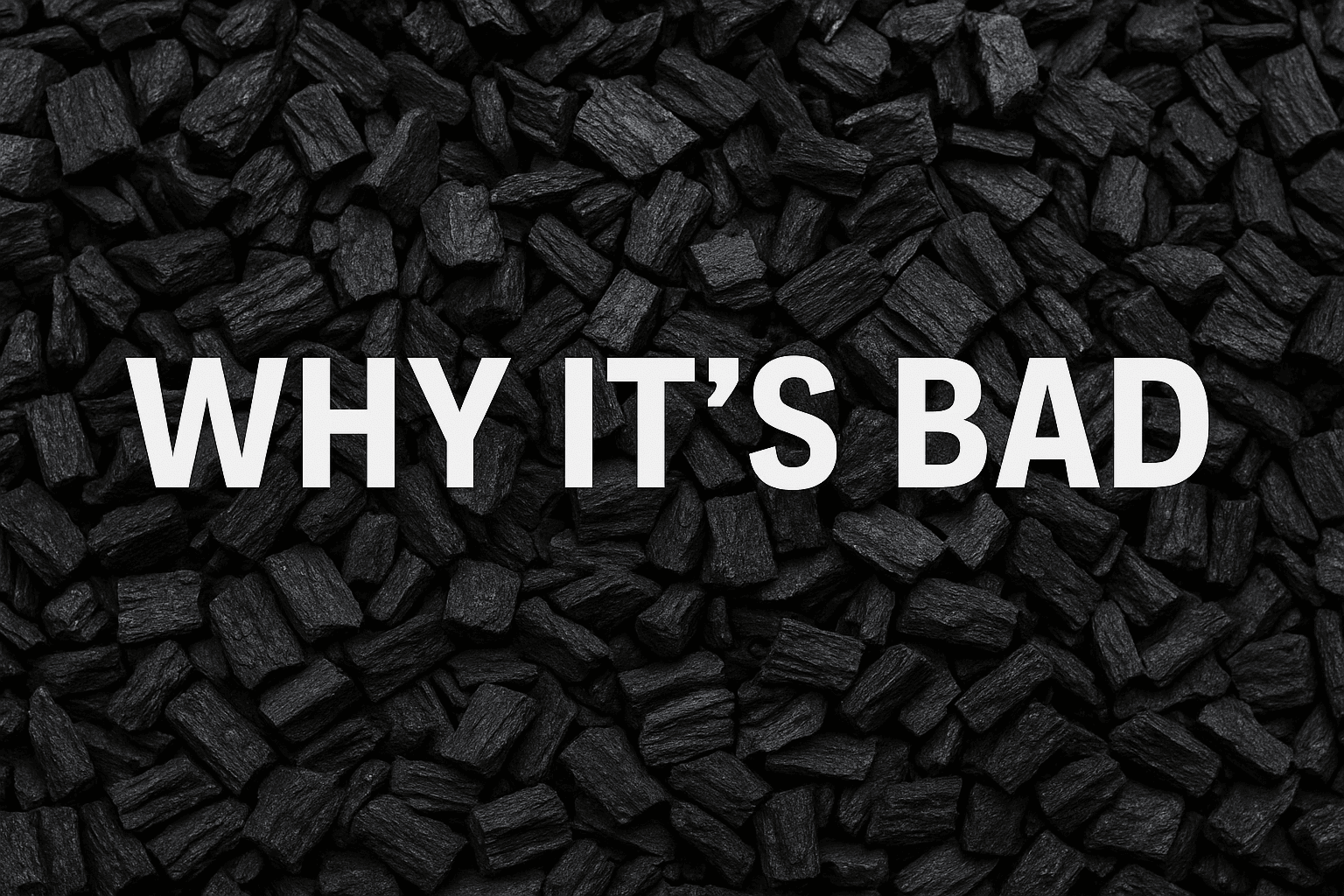Rubber mulch has gained popularity in recent years, especially as a long-lasting alternative to wood mulch. While it may seem like a low-maintenance option, it comes with a list of hidden drawbacks that can affect your plants, your soil, and even the surrounding environment. These issues often outweigh the convenience factor once you understand the long-term impact.

1. It Doesn’t Improve Your Soil
Natural mulches like shredded bark or wood chips slowly break down over time, enriching your soil with organic matter. This process improves soil health, promotes beneficial microorganisms, and helps plants thrive. Without these benefits, plants can struggle to reach their full potential over the years.
2. Potential Chemical Concerns
Rubber mulch is often made from recycled tires, which can contain heavy metals, synthetic chemicals, and other compounds. Over time, these can leach into the soil, potentially harming plants and altering the soil’s chemistry. This risk is especially concerning for homeowners with edible gardens or sensitive plants.
3. Heat Retention Can Harm Plants
Rubber absorbs and holds heat more than natural mulches. On hot summer days, it can significantly raise the temperature around your plants’ roots, leading to stress, dehydration, and even plant death. Consistent exposure to these higher temperatures can weaken plants over time.
4. It’s Not Maintenance-Free
While it won’t break down quickly, rubber mulch can still get dirty, grow algae, and scatter outside the beds, especially with strong winds or heavy rains. Once it’s mixed with soil or other debris, cleaning it can be a real challenge. Many homeowners end up replacing sections of it sooner than they expected.
5. Fire Hazard Risks
Rubber mulch is flammable and can ignite at a lower temperature than wood mulch. Once lit, it burns hotter and is much harder to extinguish. In certain situations, this can turn a small spark into a major safety concern.
6. Long-Term Environmental Impact
Because it doesn’t decompose, rubber mulch can linger in the environment for decades. If it migrates into lawns, waterways, or natural areas, it can contribute to microplastic pollution. This makes disposal at the end of its use especially challenging.
Better Alternatives
If you’re looking for a mulch that supports healthy plants, improves soil quality, and is safer for the environment, natural mulches like shredded hardwood, pine bark, or composted leaves are excellent options. They may need replenishing every year or two, but the benefits to your plants and soil are worth it. Choosing a renewable, biodegradable material also reduces your environmental footprint.
The Bottom Line
Rubber mulch may last longer than organic mulch, but the trade-offs in soil health, safety, and environmental impact make it far from the best choice. Choosing a natural mulch will support healthier plants, safer spaces, and a more sustainable landscape for years to come. In the long run, the right mulch can enhance both the beauty and the health of your property.


